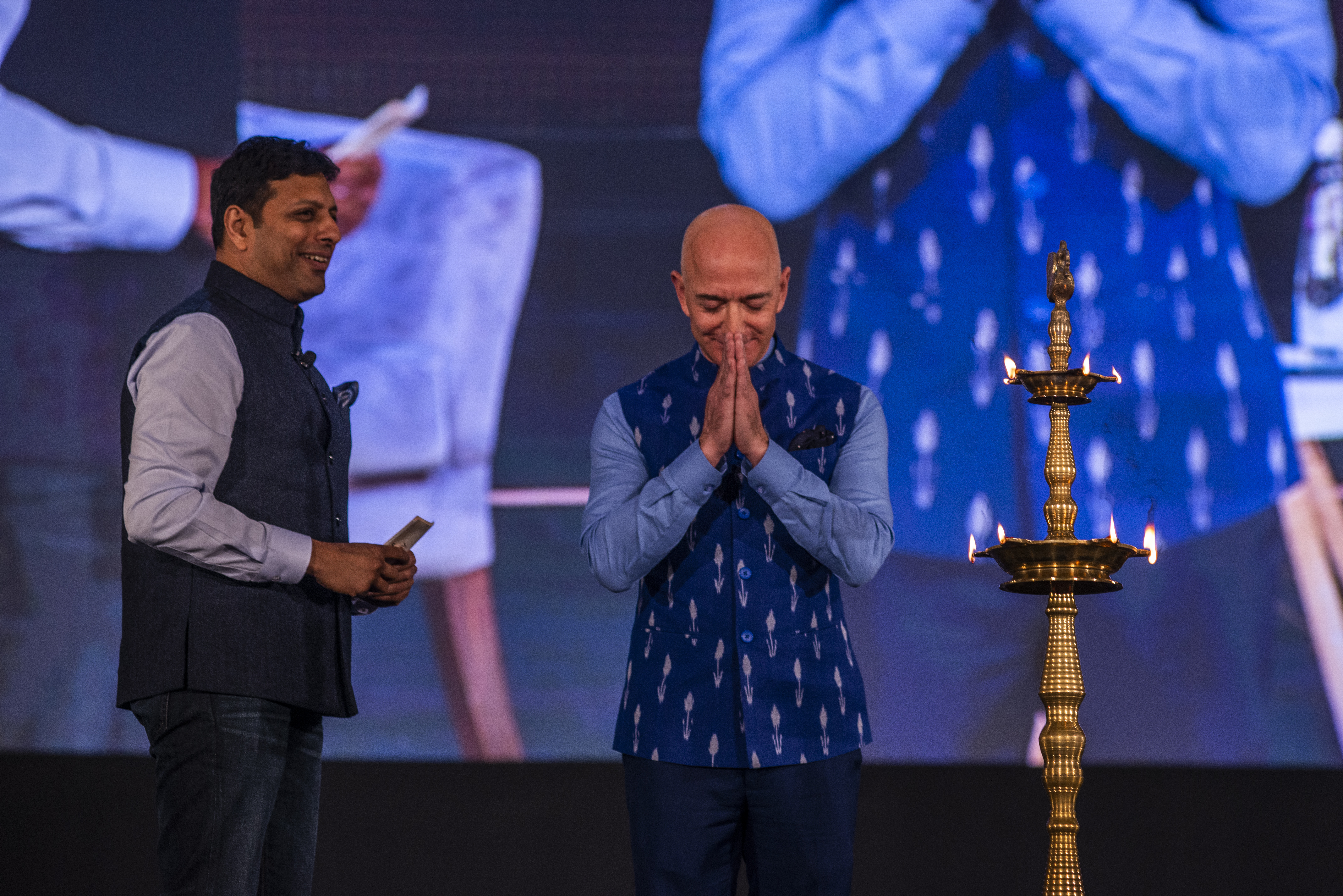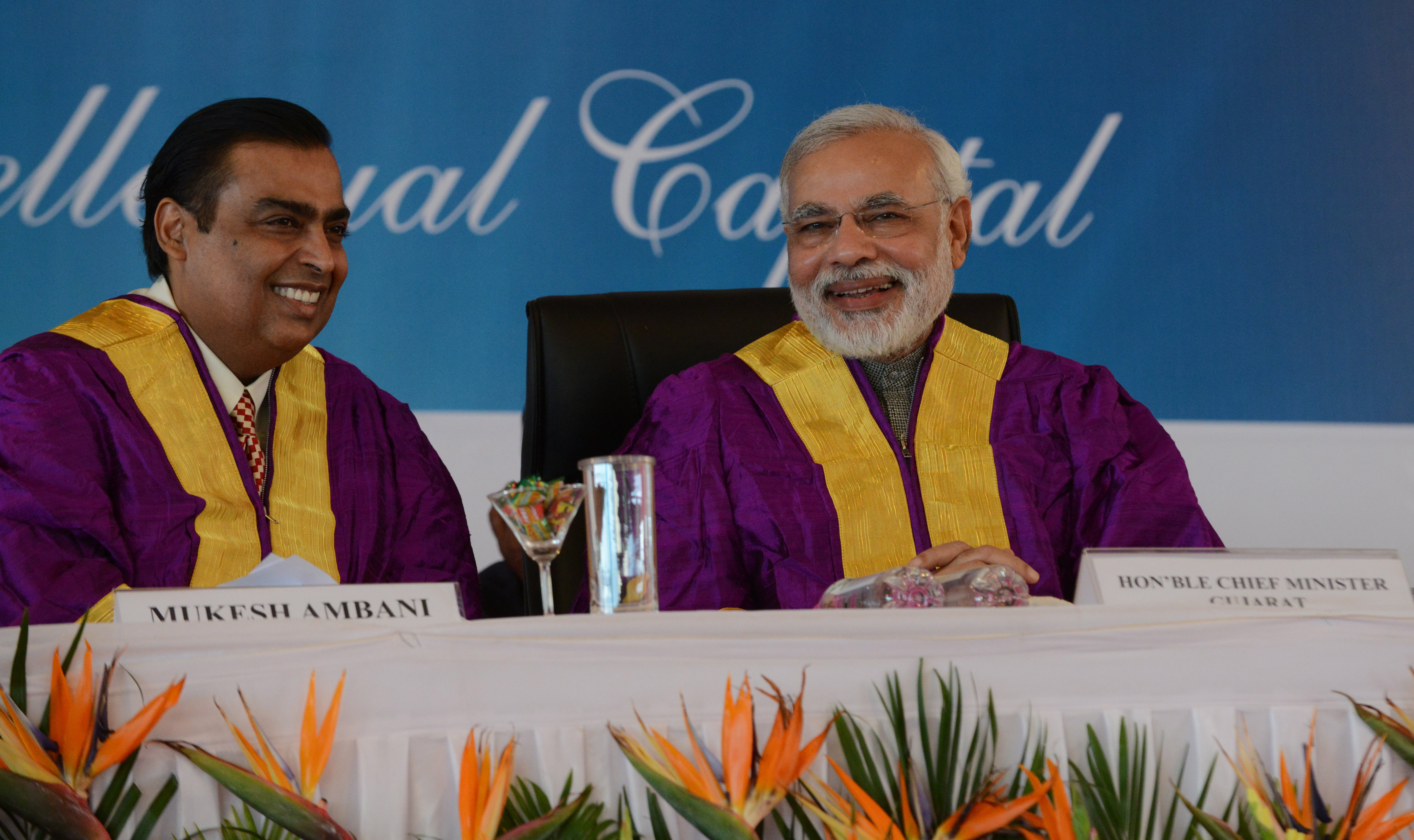Facebook’s major bet on Jio Platforms could create a headache for mobile payments services that have amassed tens of millions of users while struggling to find a business model in the world’s second-largest internet market.
The $5.7 billion investment, Facebook’s second-largest to date, could also further its dominance in India — its biggest market by user count — by expanding the reach of consumer-facing services like WhatsApp and expanding its lead over ByteDance’s TikTok, which has amassed more than 250 million Indian users in two years.
But based on what Facebook and Reliance Jio executives have shared — along with feedback from several industry analysts — the companies that need to worry most about this multi-billion-dollar bet are Walmart’s Flipkart, Paytm and Amazon.
Facebook and Jio executives said their companies will work together to build solutions; their biggest synergy would revolve around JioMart and WhatsApp, given that Reliance Jio is India’s top telecom network with more than 380 million subscribers.
One of those collaborations may allow users to find local stores around them on WhatsApp, talk to store operators and place orders from within the Facebook-owned instant messaging service, said Ajit Mohan, a Facebook VP who spearheads the company’s business in India, in an interview with TechCrunch.
“You can browse shops and talk to the shop owner. And ultimately, where we do want to take this flow is for you to be able to place your orders,” he said. Mohan refuted reports that Facebook saw the deal as an opportunity to turn WhatsApp into a so-called “super app,” however.
Store listings would be powered by JioMart, a joint venture between Reliance Industries’ Jio and Reliance Retail, the nation’s largest retail chain. The 14-year-old Reliance Retail currently serves more than 3.5 million customers each week through more than 10,000 physical stores distributed across 6,500 cities and towns.
India has more than 60 million small businesses, more than half of which are mom-and-pop stores that largely remain offline even as half a billion Indians have gained telecom access in the last decade thanks in part to cut-rate 4G data and voice calls Jio began to offer in 2016.
“These small businesses are critical to the Indian economy. If you look at Facebook as a company, there has always been a focus on helping these businesses,” said Mohan. “These small businesses, first-time entrepreneurs and new ventures leverage the Facebook platform to find new customers and expand to additional markets.”
Jayanth Kolla, chief analyst and founder of research firm Convergence Catalyst, said the deal will directly impact Amazon and Walmart, as well as social commerce players like Club Factory that have amassed millions of customers in India.

Amazon CEO Jeff Bezos with Amazon India Chief Amit Agarwal during the Amazon’s annual Smbhav event in New Delhi earlier this year. Photo: Pradeep Gaur/Mint via Getty Images
Amazon and Walmart-owned Flipkart have poured billions of dollars into India, the biggest Asian market where they are allowed to operate. Earlier this year, Amazon chief executive Jeff Bezos said the company would invest $1 billion in the nation to help “digitize micro and small businesses in cities, towns, and villages across India, helping them reach more customers than ever before.”
Despite those investments, the global e-commerce leader currently accounts for just 3% of overall retail in India. But at stake is an $800 billion retail market that is estimated to balloon to $1.3 trillion in the next five years. There is enough room for a new, giant player, analysts said.
SoftBank and Alibaba-backed Paytm attempted to become that formidable challenger to Amazon and Flipkart, but has struggled to make inroads. “Among the Indian players, I think Paytm is by far the most impacted by Wednesday’s announcement,” said Kolla.
For Paytm, another challenge is its reliance on Alibaba, the largest investor in Paytm Mall, its e-commerce venture. New Delhi amended its foreign direct investment policy last week to require government approvals on all new investments from Chinese investors.
“At a macro level, I see this as a United States and India versus China dynamic,” said Kolla. “Players like Paytm that have relied on Chinese investors might face new difficulties in raising fresh capital. And those investments could take long to close.” These regulatory hurdles have become more prevalent in recent years, and while Facebook has so far been at the receiving end of these troubles, things might change soon.
Last year, New Delhi prohibited Amazon and Flipkart from selling goods from companies in which they have a stake. Under current laws, foreign-owned e-commerce companies are not allowed to sell directly to customers. The idea is that these international players are only permitted to provide a marketplace that serves as “an information technology platform” and acts as a facilitator between “buyer and seller.”
To bypass this restriction, Amazon and Flipkart acquired stakes in several of the biggest third-party sellers. When New Delhi closed the loophole, the two companies rushed to pull hundreds of thousands of items from their stores overnight.

Ambani and Modi at an event in 2013. Photo: SAM PANTHAKY / AFP via Getty Images
One person who seems insulated — if not also a direct beneficiary — of all these policy changes is Reliance Industries’ chairman Mukesh Ambani, also the richest man in India. Ambani is a close ally to Prime Minister Narendra Modi, and Jio, which is majorly owned by an Indian entity, has supported all the protectionist policy proposals the Indian government has proposed in the last two years.
While Amazon and Flipkart were scrambling to continue their shops in India, Ambani unveiled JioMart and launched an attack on foreign firms.
At an event last year attended by Modi, the soft-spoken billionaire invoked Mahatma Gandhi, who led India’s effort to gain independence from England, by saying “we have to collectively launch a new movement against data colonization. For India to succeed in this data-driven revolution, we will have to migrate the control and ownership of Indian data back to India — in other words, Indian wealth back to every Indian.
“Honorable Prime Minister, I am sure you will make this one of the principal goals of your Digital India mission,” he added.
In a video today, Ambani said, “In the very near future, JioMart, Jio’s digital new commerce platform, and WhatsApp will empower nearly 3 crore (30 million) small Indian neighborhood shops [called kiranas] to digitally transact with every customer in their neighborhood. This means all of you can order and get faster delivery of day-to-day items, from nearby local shops. At the same time, small kiranas can grow their businesses and create new employment opportunities using digital technologies.”
“Our visionary and most respected Prime Minister Shri Narendra Modi Ji has set two ambitious goals in his ‘Digital India’ mission for all Indians, especially for common Indians; and ‘Ease of Doing Business’ for all entrepreneurs, especially for small entrepreneurs,” said Ambani. “Today, I assure you that the synergy between Jio and Facebook will help realize these two goals.”
For Facebook, which paid $19 billion to acquire WhatsApp, this synergy might be the company’s best shot to turn the service, used by more than two billion people, into a money-making machine. Facebook has explored bringing advertisements to WhatsApp, but the company has reportedly put that plan on hold.
